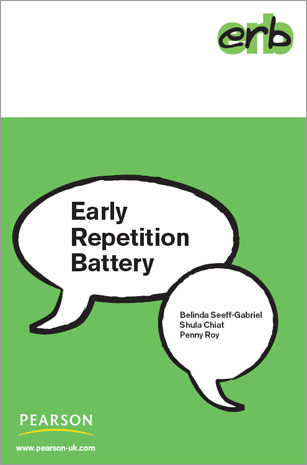Early Repetition Battery (ERB) assess phonological and morphosyntactic processing abilities
Early Repetition Battery
ERB
Early Repetition Battery (ERB) assess phonological and morphosyntactic processing abilitiesChoose from our formats
Test forms & reports
Booklets, record forms, answer sheets, report usages & subscriptions
1 option